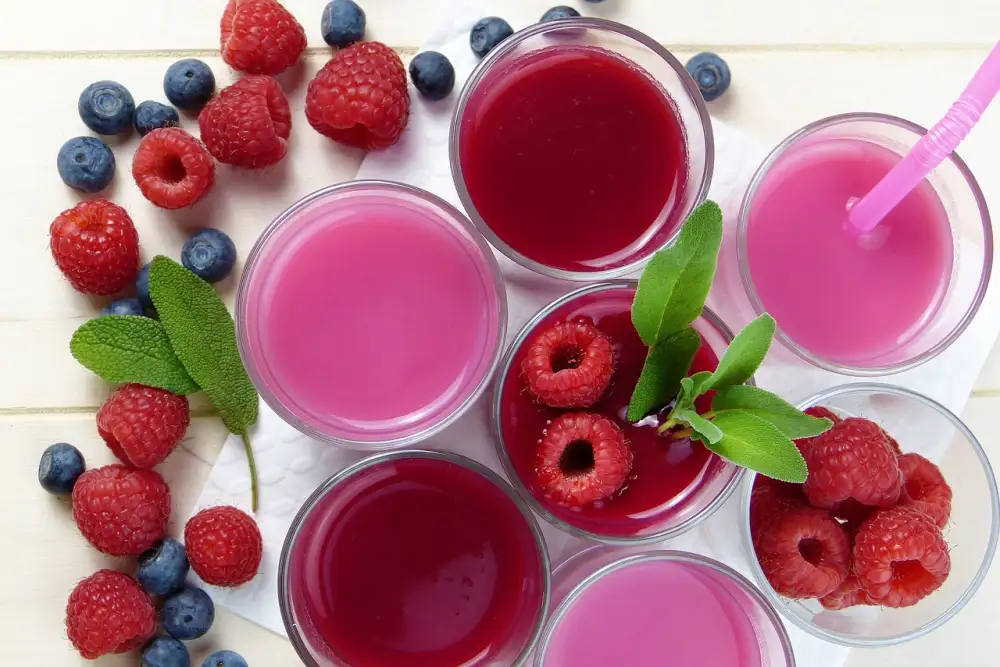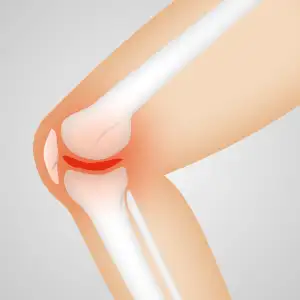Revitalize Your Health: Unleash the Power of a Juice Diet for Optimal Well-being

Are you looking for a way to revitalize your health and embark on a journey towards wellness? Look no further than the ultimate juice diet. This nutrient-packed diet has gained popularity in recent years for its ability to detoxify the body, boost energy levels, and promote weight loss. By replacing solid meals with fresh, homemade juices, you can flood your system with vitamins, minerals, and antioxidants that will nourish your body from within. Join us as we dive into the world of the juice diet and discover how it can transform your health and well-being.
Benefits of the Juice Diet
The Juice Diet offers a multitude of benefits for those looking to revitalize their health. Firstly, it provides a quick and easy way to consume a wide range of essential nutrients. Freshly squeezed juices are packed with vitamins, minerals, and antioxidants that can boost your immune system and promote overall well-being.
Additionally, the Juice Diet can aid in weight loss. By replacing high-calorie meals with nutrient-dense juices, you can reduce your calorie intake while still feeling satisfied. Juices also contain natural enzymes that can help improve digestion and metabolism, leading to more efficient fat burning.
Furthermore, the Juice Diet is known for its detoxifying properties. The abundance of fiber in fruits and vegetables helps cleanse the body by eliminating toxins and promoting regular bowel movements. This detoxification process can leave you feeling lighter, more energized, and with clearer skin.
Another benefit of the Juice Diet is its potential to improve mental clarity and focus. The high concentration of vitamins and minerals in fresh juices nourishes the brain, enhancing cognitive function and reducing brain fog.
Lastly, incorporating a variety of fruits and vegetables into your diet through juicing can strengthen your immune system. The antioxidants found in these foods help fight off free radicals that can damage cells and lead to illness or disease.
Overall, the Juice Diet offers numerous benefits for those seeking to improve their health. It provides an easy way to consume essential nutrients, aids in weight loss, detoxifies the body, enhances mental clarity, and boosts the immune system.
Types of Juices for the Diet
When it comes to the juice diet, there is a wide variety of juices you can incorporate into your daily routine. Each type of juice offers its own unique set of nutrients and benefits. Here are some popular options to consider:
1. Green Juice: Packed with leafy greens like spinach, kale, and cucumber, green juice is an excellent source of vitamins A, C, and K. It also provides a healthy dose of antioxidants and helps detoxify the body.
2. Citrus Juice: Oranges, lemons, grapefruits – these juicy fruits are bursting with vitamin C and other essential nutrients. Citrus juices are refreshing and can boost your immune system while adding a tangy flavor to your diet.
3. Beetroot Juice: Rich in iron, folate, and nitrates, beetroot juice is known for its ability to improve athletic performance and lower blood pressure. It also supports liver function and aids in digestion.
4. Carrot Juice: Carrots are high in beta-carotene, which converts into vitamin A in the body. This juice promotes healthy skin, improves vision, and boosts immunity.
5. Berry Juice: Berries such as blueberries, strawberries, and raspberries are packed with antioxidants that help fight inflammation and protect against chronic diseases. Berry juices are deliciously sweet and can satisfy your cravings while providing numerous health benefits.
6. Watermelon Juice: This hydrating fruit is not only refreshing but also rich in lycopene – a powerful antioxidant that promotes heart health. Watermelon juice is low in calories but high in vitamins A and C.
Remember to choose organic fruits and vegetables whenever possible to minimize exposure to pesticides and maximize nutritional value. Experiment with different combinations of fruits and vegetables to find the flavors that suit your taste buds best!
How to Start a Juice Diet
Starting a juice diet can be an exciting and transformative journey towards better health. Here are some steps to help you get started:
1. Set your goals: Determine what you want to achieve with the juice diet, whether it's weight loss, detoxification, or simply improving your overall well-being.
2. Choose the right juicer: Invest in a high-quality juicer that can extract maximum nutrients from fruits and vegetables. Cold-press juicers are recommended as they retain more nutrients than centrifugal juicers.
3. Plan your juices: Research different juice recipes and create a plan for each day of your diet. Include a variety of fruits and vegetables to ensure you get a wide range of nutrients.
4. Stock up on ingredients: Purchase fresh, organic produce that is in season. This will ensure that you're getting the most nutrient-dense ingredients for your juices.
5. Prepare in advance: Preparing your juices in advance can save time and make it easier to stick to the diet. Wash, chop, and store your ingredients in airtight containers in the refrigerator.
6. Start slowly: Begin by replacing one meal or snack with a juice each day and gradually increase the number of juices while reducing solid food intake. This will allow your body to adjust gradually.
7. Stay hydrated: In addition to drinking juices, it's important to stay hydrated by consuming plenty of water throughout the day.
8. Listen to your body: Pay attention to how you feel during the juice diet. If you experience any discomfort or adverse effects, consult with a healthcare professional.
By following these steps, you'll be well on your way to starting a successful juice diet and reaping its numerous health benefits.
Tips for a Successful Juice Diet
1. Choose fresh, organic fruits and vegetables: Opt for locally sourced produce to ensure maximum freshness and nutrient content in your juices.
2. Incorporate a variety of fruits and vegetables: Aim to include a wide range of colors and flavors in your juices to ensure you are getting a diverse array of vitamins, minerals, and antioxidants.
3. Drink plenty of water: While juice can be hydrating, it's important to also drink enough water throughout the day to stay properly hydrated.
4. Listen to your body: Pay attention to how you feel during the juice diet. If you experience any discomfort or unusual symptoms, consult with a healthcare professional.
5. Gradually reintroduce solid foods: After completing the juice diet, slowly reintroduce solid foods back into your diet to avoid digestive issues.
6. Keep track of your progress: Maintain a journal to record your daily juice intake, how you feel, and any changes you notice in your health or well-being.
7. Seek support from others: Joining a community or finding a buddy who is also doing the juice diet can provide motivation and accountability.
8. Consult with a healthcare professional: Before starting any new diet or cleanse, it's always best to consult with a healthcare professional to ensure it is safe and suitable for your individual needs.
Remember, the key to a successful juice diet is balance and moderation. Enjoy the journey towards better health!
Potential Risks and Considerations
While the juice diet can offer numerous health benefits, it is important to be aware of potential risks and considerations before embarking on this dietary plan.
1. Nutrient Deficiencies: Although juices are packed with vitamins and minerals, they may lack certain essential nutrients such as protein, fiber, and healthy fats. It is crucial to ensure you are still obtaining these nutrients from other sources while on the juice diet.
2. Calorie Intake: Juices are often low in calories, which can lead to a significant calorie deficit if not supplemented properly. This can result in fatigue, weakness, and even muscle loss. It is advisable to consult a healthcare professional or nutritionist to determine the appropriate calorie intake for your specific needs.
3. Blood Sugar Imbalances: Some juices may have a high glycemic index due to their natural sugar content. This can cause rapid spikes in blood sugar levels, especially for individuals with diabetes or insulin resistance. Monitoring blood sugar levels regularly is essential for those with these conditions.
4. Digestive Issues: The sudden increase in fruit and vegetable intake through juices can sometimes lead to digestive discomfort such as bloating, gas, or diarrhea. It is recommended to start slowly and gradually increase the amount of juice consumed over time.
5. Lack of Long-Term Sustainability: The juice diet is typically used as a short-term cleanse or detoxification method rather than a long-term sustainable eating plan. Relying solely on juices for an extended period may not provide all the necessary nutrients required for optimal health.
Before starting any new diet or making significant changes to your current eating habits, it is always best to consult with a healthcare professional or registered dietitian who can assess your individual needs and guide you accordingly.
Frequently Asked Questions about the Juice Diet
1. Is the juice diet suitable for everyone?
The juice diet is generally safe for most individuals. However, it may not be suitable for those with certain medical conditions or on specific medications. It's always best to consult with a healthcare professional before starting any new diet.
2. Can I eat solid foods while on the juice diet?
The juice diet typically involves consuming only juices and liquids for a certain period of time. However, some variations allow for small amounts of solid foods like fruits and vegetables. It's important to choose a plan that aligns with your goals and preferences.
3. Will I lose weight on the juice diet?
Many people experience weight loss while on the juice diet due to its low-calorie nature. However, individual results may vary depending on factors such as metabolism and activity level.
4. Can I exercise while on the juice diet?
Light exercise such as walking or yoga is generally safe during the juice diet. However, intense workouts may be challenging due to reduced calorie intake. Listen to your body and adjust your exercise routine accordingly.
5. How long should I stay on the juice diet?
The duration of the juice diet varies depending on personal goals and health conditions. Some people opt for short-term cleanses lasting a few days, while others follow longer programs lasting several weeks. It's crucial to listen to your body and consult with a healthcare professional for guidance.
6. Will I get enough nutrients on the juice diet?
Freshly squeezed juices can provide an array of essential vitamins, minerals, and antioxidants. However, it's important to ensure you're getting a variety of juices that include different fruits and vegetables to maximize nutrient intake.
7. Can I drink store-bought juices instead of making my own?
While store-bought juices can be convenient, they often contain added sugars and preservatives that may hinder your progress. It's best to make your own juices using fresh, organic produce for optimal health benefits.
Remember, the juice diet is not a long-term solution and should be approached with caution. It's always recommended to seek guidance from a healthcare professional before starting any new diet or making significant changes to your eating habits.
The juice diet can be a powerful tool for revitalizing your health and achieving wellness. It offers numerous benefits, including weight loss, increased energy levels, improved digestion, and enhanced nutrient intake. However, it may not be suitable for everyone.
Before starting a juice diet, it is important to consult with a healthcare professional or nutritionist to ensure that it aligns with your individual needs and goals. Additionally, if you have any underlying health conditions or are taking medications, it is crucial to seek medical advice before embarking on this diet.
While the juice diet can provide an abundance of nutrients, it is essential to remember that it should not be used as a long-term solution. It is best utilized as a short-term cleanse or as part of a balanced diet plan.
Ultimately, the decision to embark on a juice diet rests with you. Consider your personal preferences, lifestyle, and health goals when evaluating if this diet is right for you. With proper planning and guidance from professionals, the juice diet can be an effective way to kickstart your journey towards optimal health and wellness.
Published: 18. 01. 2024
Category: Health



